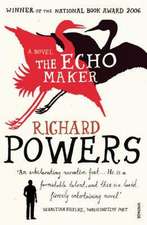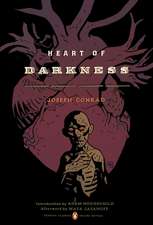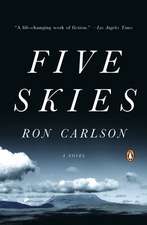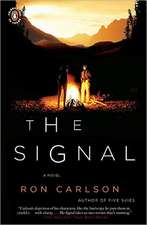Of Mice and Men: Penguin Audio Classics
Autor John Steinbeck Gary Siniseen Limba Engleză CD-Audio – 31 mar 2011 – vârsta de la 18 ani
Of Mice and Men also represents an experiment in form, as Steinbeck described his work, "a kind of playable novel, written in novel form but so scened and set that it can be played as it stands." A rarity in American letters, it achieved remarkable success as a novel, a Broadway play, and three acclaimed films.
From the Trade Paperback edition.| Toate formatele și edițiile | Preț | Express |
|---|---|---|
| Paperback (6) | 46.73 lei 24-30 zile | +15.31 lei 4-10 zile |
| Penguin Books – aug 2024 | 46.73 lei 24-30 zile | +15.31 lei 4-10 zile |
| Penguin Books – 31 aug 1993 | 64.74 lei 3-5 săpt. | +11.01 lei 4-10 zile |
| Klett Sprachen GmbH – 22 iun 2009 | 71.67 lei 17-23 zile | +6.66 lei 4-10 zile |
| Josef Weinberger Plays – 8 feb 2007 | 73.32 lei 3-5 săpt. | +4.41 lei 4-10 zile |
| Penguin Books – 31 ian 1994 | 81.26 lei 3-5 săpt. | |
| Penguin Books – 31 dec 2001 | 87.86 lei 3-5 săpt. | |
| Hardback (2) | 52.55 lei 24-30 zile | +18.07 lei 4-10 zile |
| Penguin Books – 23 feb 2023 | 52.55 lei 24-30 zile | +18.07 lei 4-10 zile |
| Bloomsbury Publishing – 31 aug 1993 | 161.48 lei 3-5 săpt. |
Preț: 92.70 lei
Nou
17.74€ • 19.28$ • 14.91£
Indisponibil temporar
Specificații
ISBN-10: 014242918X
Pagini: 3
Dimensiuni: 134 x 146 x 21 mm
Greutate: 0.13 kg
Editura: Penguin Audiobooks
Seria Penguin Audio Classics
Notă biografică
After marriage and a move to Pacific Grove, he published two California books, The Pastures of Heaven (1932) and To a God Unknown (1933), and worked on short stories later collected in The Long Valley (1938). Popular success and financial security came only with Tortilla Flat (1935), stories about Monterey’s paisanos. A ceaseless experimenter throughout his career, Steinbeck changed courses regularly. Three powerful novels of the late 1930s focused on the California laboring class: In Dubious Battle (1936), Of Mice and Men (1937), and the book considered by many his finest, The Grapes of Wrath (1939). The Grapes of Wrath won both the National Book Award and the Pulitzer Prize in 1939.
Early in the 1940s, Steinbeck became a filmmaker with The Forgotten Village (1941) and a serious student of marine biology with Sea of Cortez (1941). He devoted his services to the war, writing Bombs Away (1942) and the controversial play-novelette The Moon is Down (1942). Cannery Row (1945), The Wayward Bus (1948), another experimental drama, Burning Bright (1950), and The Log from the Sea of Cortez (1951) preceded publication of the monumental East of Eden (1952), an ambitious saga of the Salinas Valley and his own family’s history.
The last decades of his life were spent in New York City and Sag Harbor with his third wife, with whom he traveled widely. Later books include Sweet Thursday (1954), The Short Reign of Pippin IV: A Fabrication (1957), Once There Was a War (1958), The Winter of Our Discontent (1961), Travels with Charley in Search of America (1962), America and Americans (1966), and the posthumously published Journal of a Novel: The East of Eden Letters (1969), Viva Zapata! (1975), The Acts of King Arthur and His Noble Knights (1976), and Working Days: The Journals of The Grapes of Wrath (1989).
Steinbeck received the Nobel Prize in Literature in 1962, and, in 1964, he was presented with the United States Medal of Freedom by President Lyndon B. Johnson. Steinbeck died in New York in 1968. Today, more than thirty years after his death, he remains one of America's greatest writers and cultural figures.
Descriere
While the powerlessness of the laboring class is a recurring theme in Steinbeck's work of the late 1930s, he narrowed his focus when composing "Of Mice and Men" (1937), creating an intimate portrait of two men facing a world marked by petty tyranny, misunderstanding, jealousy, and callousness. But though the scope is narrow, the theme is universal; a friendship and a shared dream that makes an individual's existence meaningful.
Recenzii
“Brutality and tenderness mingle in these strangely moving pages. . . . The reader is fascinated by a certainty of approaching doom.”— Chicago Tribune
”A short tale of much power and beauty. Mr. Steinbeck has contributed a small masterpiece to the modern tough-tender school of American fiction.”— Times Literary Supplement [London]























